Throughout history, countless patents have been filed in an effort to solve everyday problems, often with remarkable success. Many of the greatest inventions are simple yet effective, designed to make our lives easier while adding a touch of innovation. But not every idea hits the mark.
Some inventions seem to miss the point entirely, either attempting to solve issues that don’t really exist or doing so in the most bizarre ways. These curious creations stand out for their oddities, sparking both intrigue and amusement.
1. The monowheel motorbike
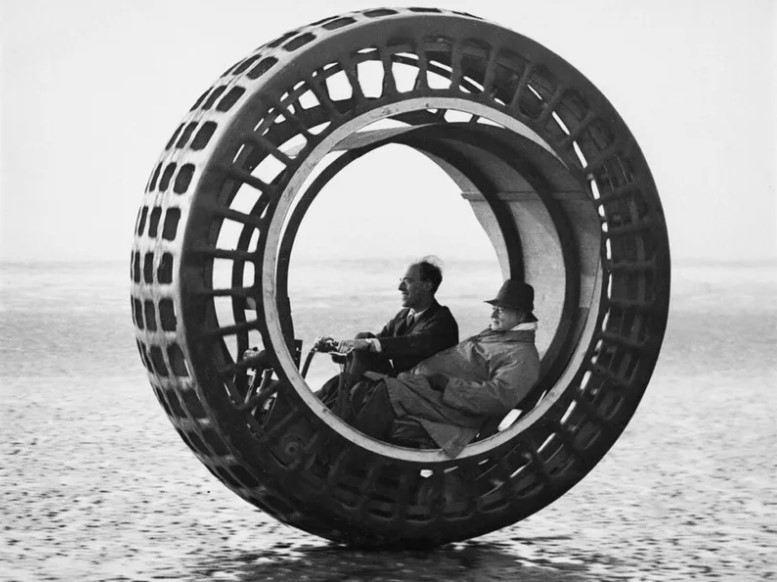
The Dynasphere, a monowheel vehicle powered by a gas engine or an experimental electric motor, was an eye-catching creation in 1932. Invented by John Archibald Purves and tested by his son on Brean Sands, the Dynasphere reached speeds of up to 48 km/h. Standing nearly three meters high, its unique design was captivating but far from practical.
Steering was a challenge, and it was notoriously prone to “gerbiling”—a phenomenon where sudden braking or acceleration could fling the driver around inside, much like a pet gerbil in a wheel. Despite its novelty, the Dynasphere’s safety concerns and handling issues kept it from becoming a feasible vehicle.
2. Glowing tyres
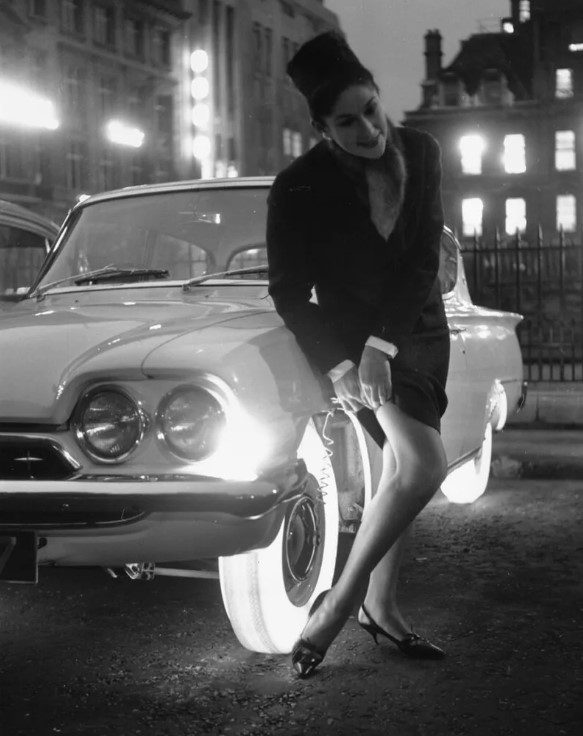
In the 1960s, tyre company Goodyear came up with the concept of glow-in-the-dark tires. These unique tires were made from a special synthetic rubber and illuminated by bulbs inside the wheel, casting a bright glow.
Goodyear planned to release them in various colors, creating a striking effect on nighttime roads. Unfortunately, they didn’t hold up well in wet conditions and had a tendency to overheat and even melt under hard braking. Due to these safety issues, Goodyear eventually shelved the idea.
3. Bed glasses
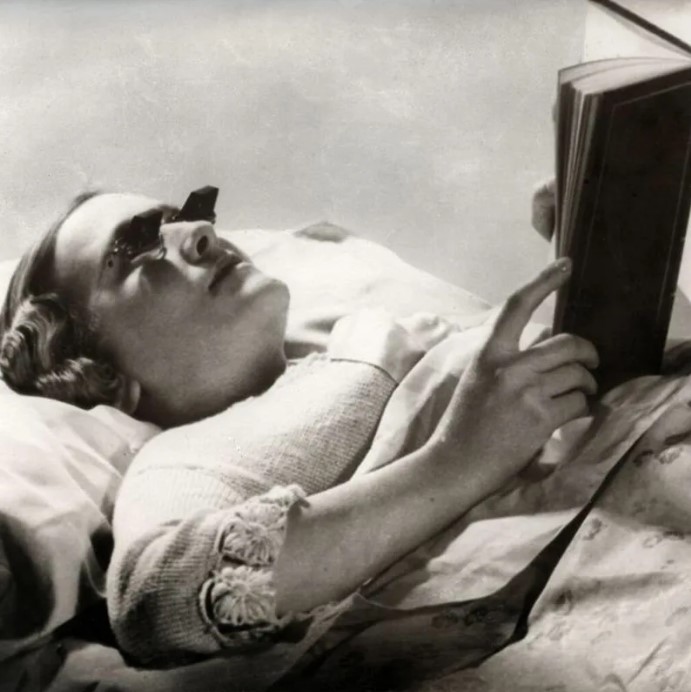
Hamlin reading glasses were quite an innovation, designed specifically for those who wanted to read comfortably while lying down. With a clever mirror system similar to a periscope, these glasses allowed readers to view a book at a 45-degree angle, reducing strain. They could also potentially help users see their feet while walking, showing just how versatile—and a bit quirky—this design was.
4. The cat meow machine
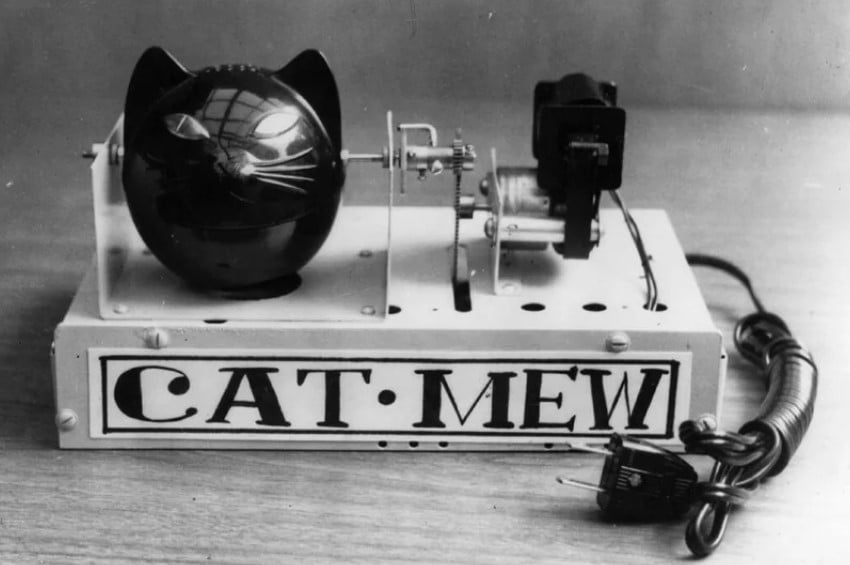
Looking to enjoy the perks of a cat without actually owning one? In the 1960s, Japan introduced a quirky invention aimed at deterring rodents, mimicking the presence of a cat without the mess or upkeep.
Unfortunately, while this device may have been designed to keep pests at bay, it didn’t fool any mice, nor did it offer the warmth and companionship of the real thing. But on the bright side, it came without the shredded furniture or “gifts” of small creatures that real cats sometimes leave behind.
5. Massage helmet
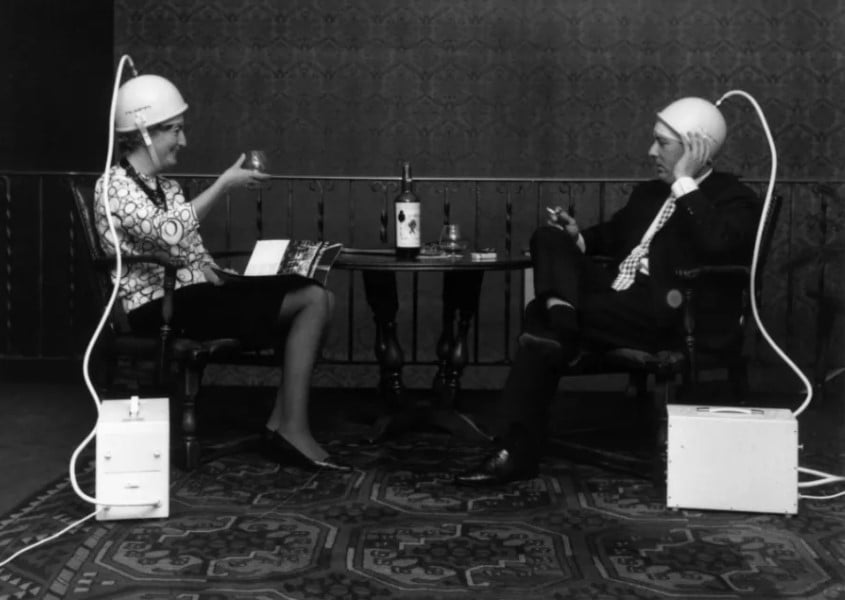
In the 1960s, relaxation technology took a futuristic turn with the air-powered massage helmet. This device offered an at-home scalp massage experience, giving users the sensation of a soothing head rub without needing to step into a spa.
While the original helmet looked bulky, the concept has stood the test of time, inspiring today’s portable, compact massage gadgets that deliver a similar experience in a much more convenient package.
6. Siamese dancing shoes
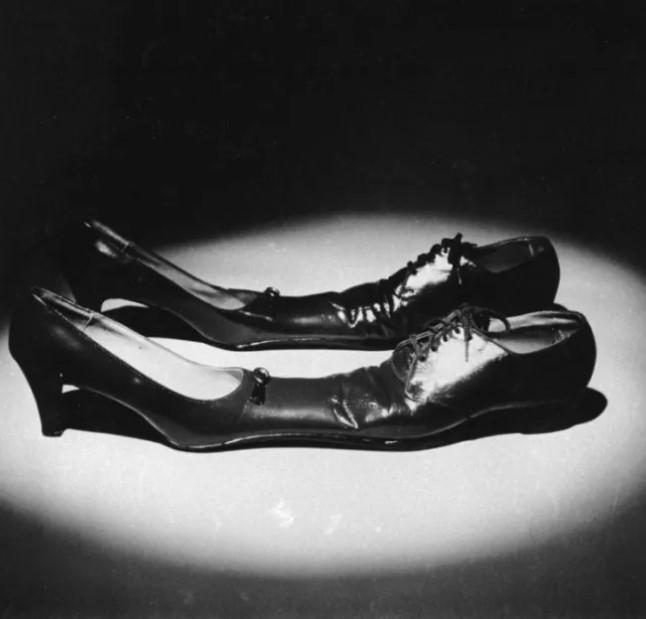
The quirky “Siamese dancing shoes” made their debut in 1981 as part of a humorous “Better Living Catalogue.” Created for ballroom dancers, these shoes were designed to keep partners connected—literally.
The concept poked fun at the challenge of staying in sync on the dance floor, promising that couples would stay locked together, even if that meant tumbling rather than waltzing gracefully.
7. Mass shaving machine
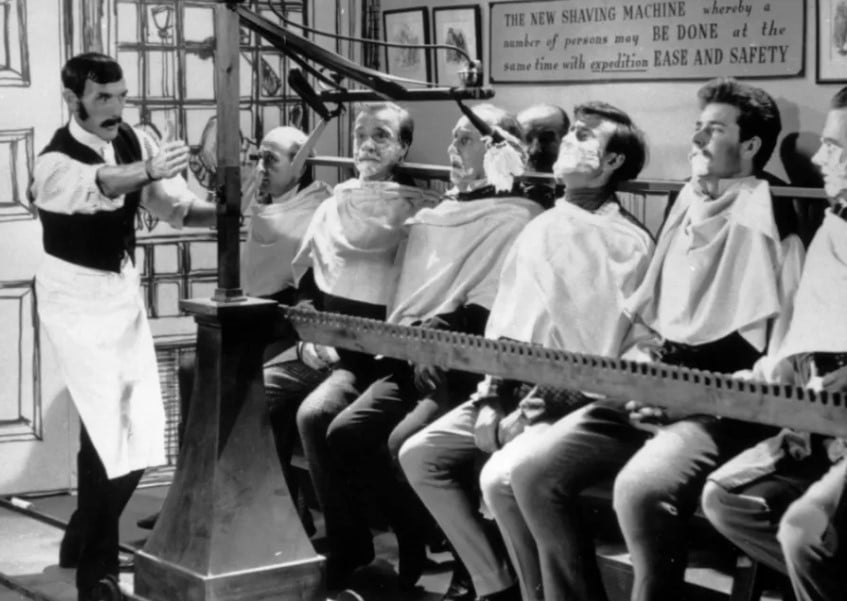
In the 19th century, barber shops adopted the assembly line concept with an unusual mass-shaving machine that changed the industry. This invention allowed a single barber to shave up to a dozen clients at once, transforming the efficiency of the traditional shave. No longer just factory tools, assembly-line machines were reimagined in creative ways—even at the barber’s chair!
8. Spaghetti aid
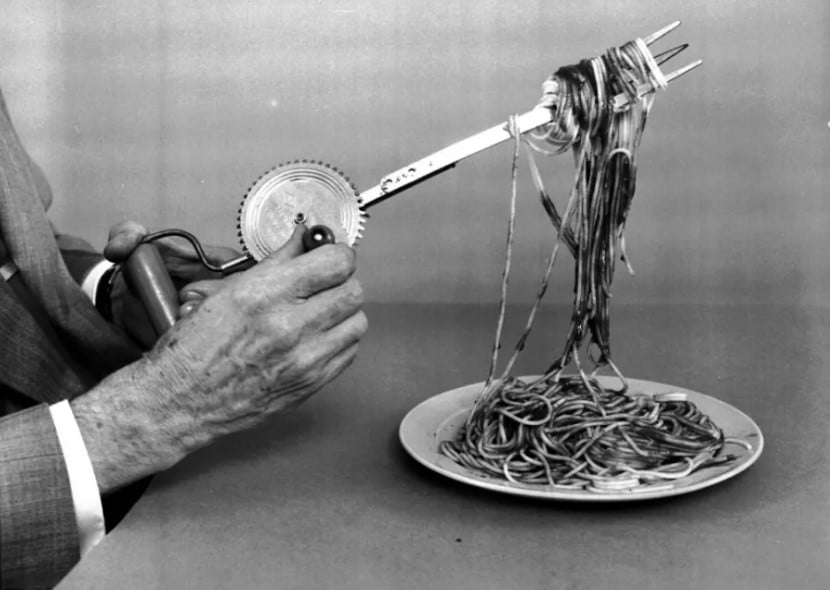
The invention of a spaghetti-twirling aid made eating pasta a breeze by effortlessly wrapping noodles around the fork. Initially a quirky novelty, it allowed diners to enjoy spaghetti without the usual mess.
Surprisingly, this gadget has made a comeback, now with a battery-powered upgrade for even faster twirling. Despite its simple purpose, it’s once again a fun tool for pasta lovers everywhere.
9. Family bicycle
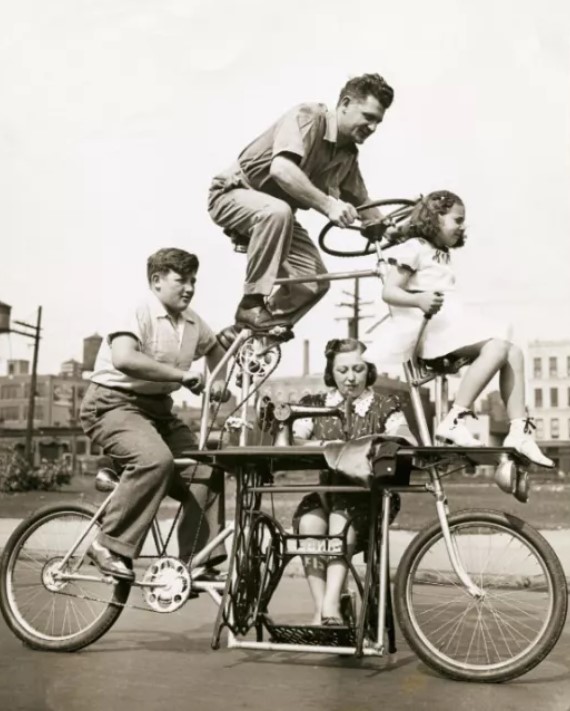
Inventor Charles Steinlauf created a unique bicycle that allowed an entire family to ride together, with seats arranged for all kinds of activities. Two people could pedal, one could ride up front, and there was even a special seat designed for a seamstress to sew as they traveled.
It was a clever mix of practicality and novelty, capturing a glimpse of early 20th-century ingenuity that aimed to combine family outings with everyday chores.
10. Chain smoker

Back in the mid-20th century, when smoking was widely endorsed—even by doctors—there was a gadget that allowed people to smoke ten cigarettes simultaneously. Known as the chain smoker device, it was designed to give a substantial nicotine hit all at once.
While this invention might shock us today, it speaks to an era when smoking was deeply woven into everyday life and far less scrutinized for its health impacts.
11. Duplex Hand-Scale

In the 1950s, housewives had an innovative new tool in the kitchen: the Duplex Hand-Scale. This small, plastic spoon-like device was designed to weigh ingredients directly, simplifying the baking process by eliminating the need for measuring cups. The scale was cleverly integrated into the handle, making it easy to measure ingredients accurately.
12. Pramobile
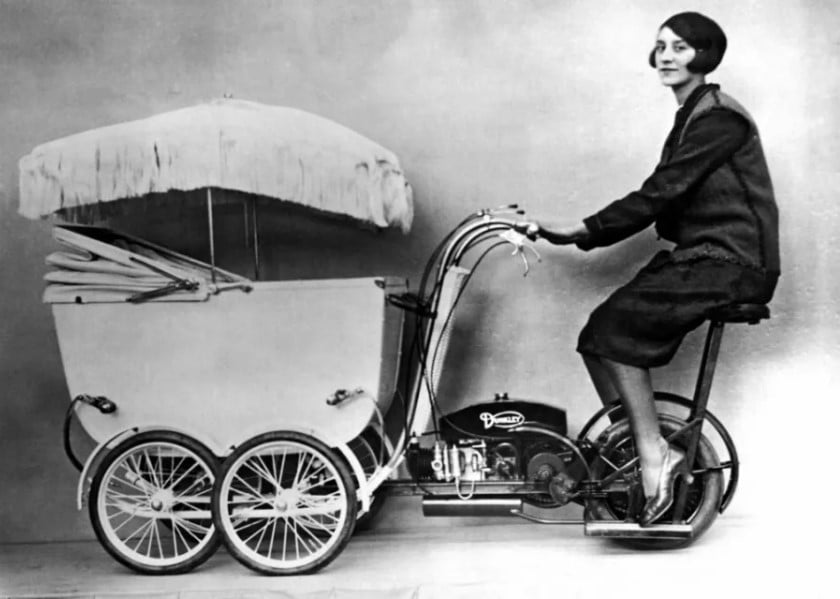
In the 1920s, the pramobile was a revolutionary invention that allowed parents to travel with their babies at speeds of up to 15 miles per hour. This early design paved the way for today’s modern child trailers, which parents attach to their bicycles for safe, fast transportation with their little ones.
13. Spring Shoes
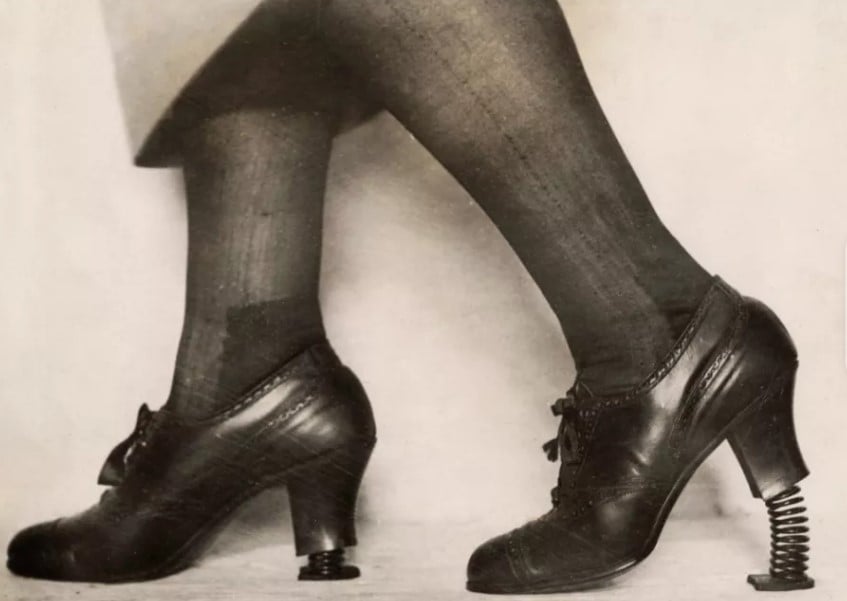
In the 1930s, shoes with springs built into the heels gave wearers a little extra bounce in their step. These coils, originally designed for comfort and style, later evolved into a key feature of modern sneakers.
Today, they’re often hidden inside the soles to help absorb shock and reduce foot pain, making them an essential part of athletic footwear.


